SelfReliance

Edvard Munch: Self-Portrait in Moonlight (1904–06)
" … a lesson which I never expect to stop learning."
However steeped in frontier tradition the concept might be, SelfReliance seems worthless when Publishing. While writing might be fairly characterized as a solo endeavor, Publishing's inescapably plural. It features altogether too many moving parts and picky pieces for any individual to master. It takes a village, and all that, to publish.
Still, the writer blanches through acceptance of this humbling fact.
ShelfDiscipline

Lucian and Mary Brown:
Untitled [boy playing with action figures on shelf] (c. 1950)
" … groaning in the background."
The manuscript shelves in my office hold printed, unfinished manuscripts. It serves as one of the stages in my never-ending seeming copyediting queue. Since I find copyediting disquieting, I rarely visit those shelves, so they also serve as an essentially infinite queue. I cannot imagine ever arriving at the end of that pile. It grows by one fresh member every quarter, and I'm several quarters behind. How many? I cannot tell for certain, for I only managed to start a list when I began writing this Publishing series. I've not yet finished it.
I seem to lack a specific sort of discipline; the ShelfDiscipline required to conquer my copyediting queue.
PluralSelves
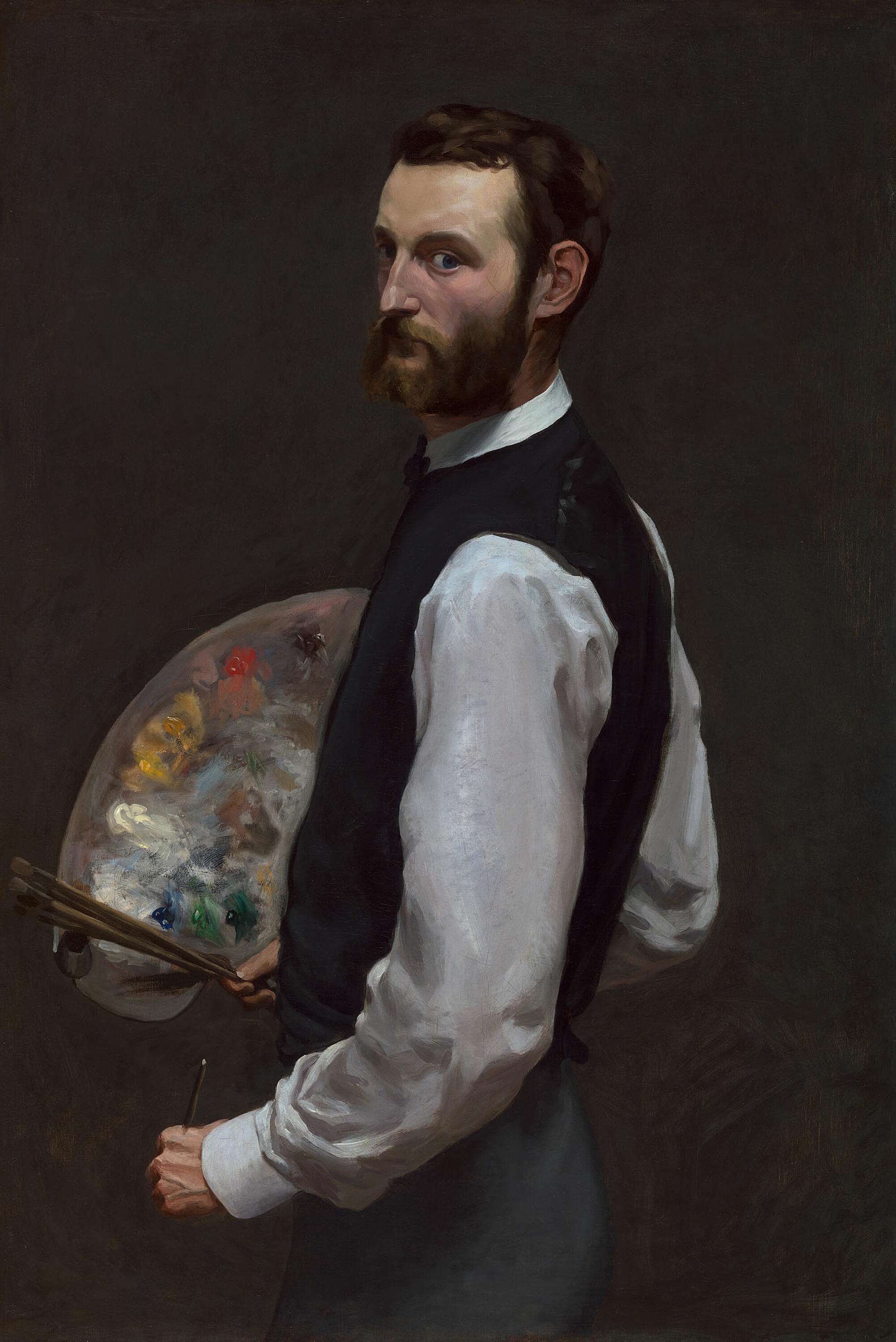
Frédéric Bazille: Self-Portrait (1865/66)
" … a life far removed from its author."
Most of the great nineteenth and twentieth-century painters produced self-portraits, works that at first looked very much like them but which later took on other lives. Writers perform this trick, too, for they also inescapably produce self-portraits. I might argue that anything any artist produces amounts to another self-portrait, whatever the content, and that each work goes on to live a separate life from its creator. Artists live life as PluralSelves, with at least as many instances of themself as works they produced. Publishing distributes an artist's work more broadly than their studio. In this way, an artist's presence need not depend upon that artist's physical presence. Their influence stretches much farther than they ever know.
Few consumers of any artist's work ever think to drop that artist a note of appreciation to thank them for exerting the influence they produced.
APublication
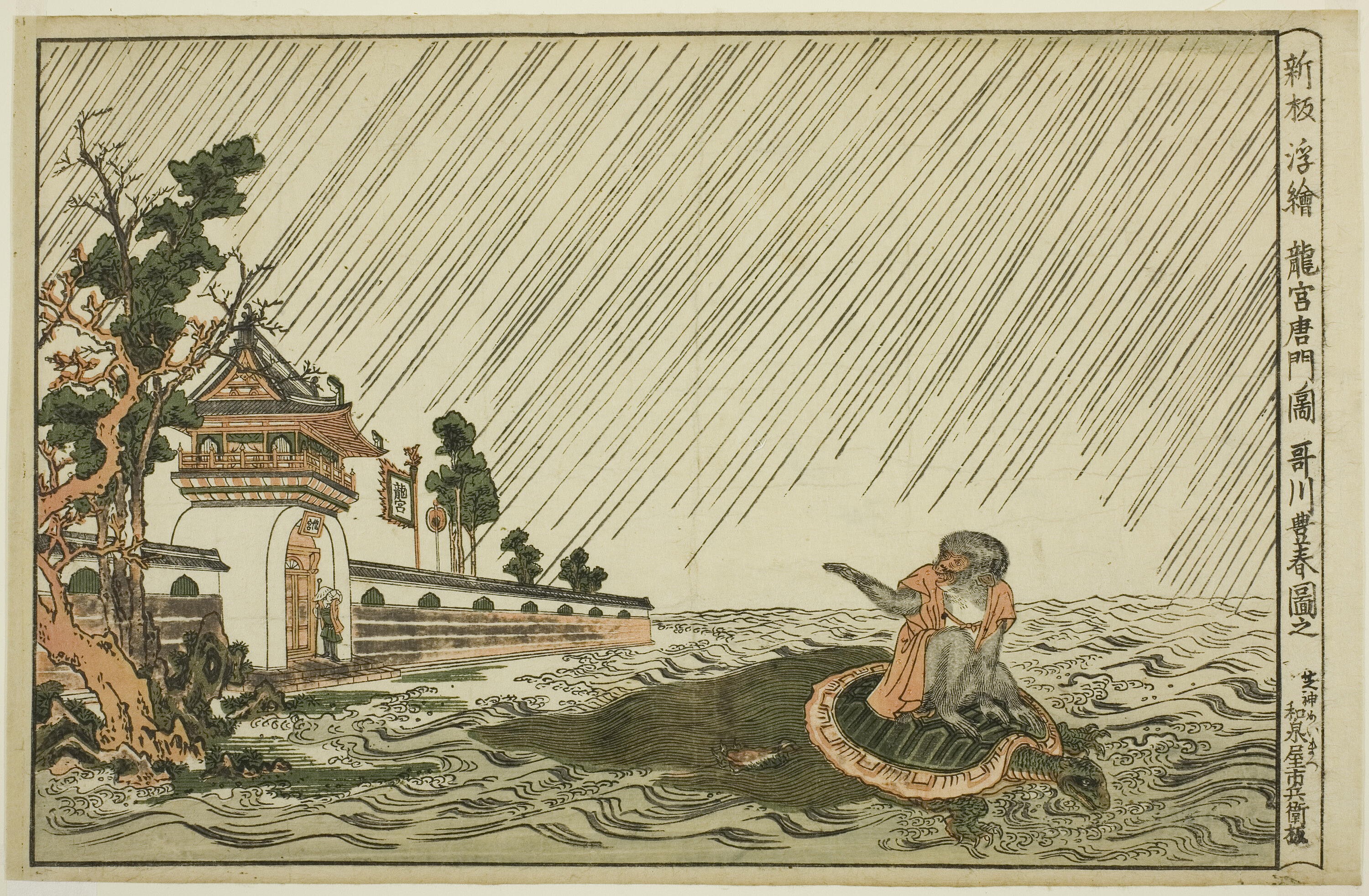
Utagawa Toyoharu:
Newly Published Perspective Picture of the Gate
of the Palace of the Dragon King
(Shinpan uki-e Ryugu karamon no zu) (c. 1772/89)
" … illegal prepositions at the end of imperfect sentences."
My son Wilder, visiting with his two kids over Spring Break, slipped upstairs as we waited for breakfast, returning with a slim volume. It was the long-awaited book of my dearly departed Dwarlink Dwaughta Heidi's poetry, freshly published. After she died, a family friend who had also lost her poet daughter at an even younger age volunteered to edit a volume of Heidi's surviving works, for her poetry seemed suddenly immortal, certainly more so than their author. My first wife wrote a brief forward, I contributed an afterword, and my son, an accomplished fine artist, produced the cover art. I held a thin slice of time in my hand.
APublication can achieve this sort of impossible.
DamnedPandemic

Weegee (Arthur Fellig):
Audience Reaction (c. 1940 - c. 1950)
"I'll always continue wearing my mask."
Our continuing Damned Pandemic has utterly changed my relationship with this world. Previously unimaginable reactions to what certainly appeared to be clear and present dangers left me feeling extremely paranoid. I gratefully took to wearing my mask, baffled why some found the task onerous. Fresh definitions of freedom emerged: I, with my freedom to wear my mask in public, a great and reassuring liberty to me, and others, with their belligerent insistence to never wear one, whatever the personal or collective consequences. I saw self-centered cynicism run rampant, even among family members. I, myself, sequestered. I took respite behind firm defenses. My paltry social existence further withered. I essentially became a hermit.
I invited a few into my bubble, and a blesséd few accepted my offer.
SmallStumbles

Attributed to Augustus Cordus:
The Fall of Man with Scenes of the Creation (1544)
"This is Publishing?"
The first few steps disorient me. I had become accustomed to success, easy success, and actions taken within my domain. Outside, trying different, I find walking disorienting. I cannot find my spot. I need to think carefully, ponderously, before moving, and even then, I discover that I'm moving in some wrong direction, not precisely backward, but not precisely forward, either. I seem capable only of SmallStumbles. I inch my way along. My more grandiose schemes utterly gone, I seek footholds and still stumble. I relearn that I can move forward in reverse, backing my way into my future, but I have to look over my shoulder. My perspective narrowed, and I feel grateful for achieving any momentum and calling that progress. Small steps with SmallStumbles amounts to initial success.
I'm not yet sold on the idea of Publishing.
BreakingGround
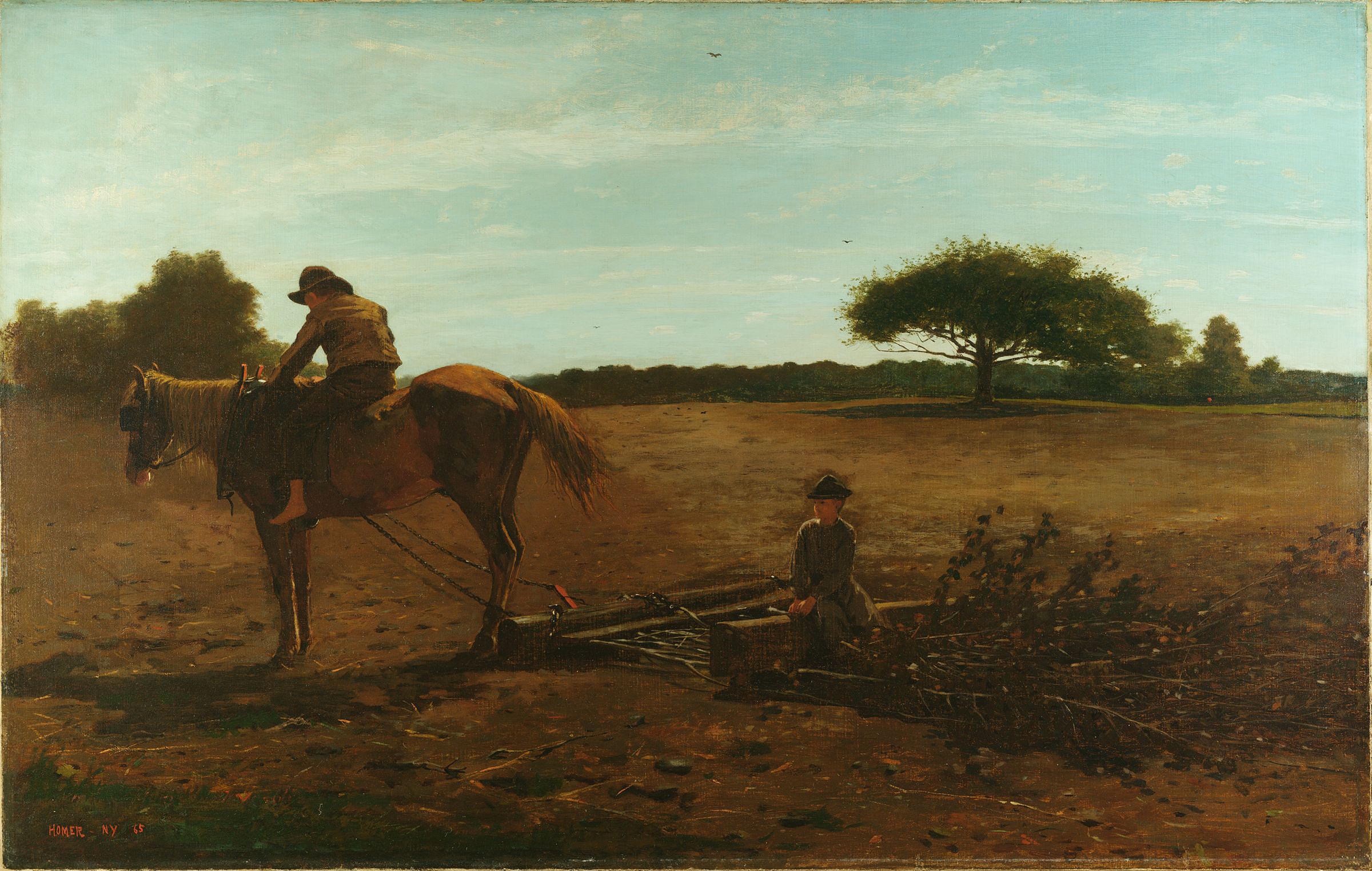
Winslow Homer: The Brush Harrow (1865)
" … hoping for better without ever really expecting it."
Spring threatens before arriving. I can imagine it already here, even before the equinox, even while it continues snowing some mornings. The sun's angle serves as inexorable evidence of its imminent arrival. I'm caught unprepared. Even if I had properly prepared last Fall, I would still feel unprepared because everything suddenly wants doing at once. Wherever I might begin will feel like the wrong place to start, a distracting sideshow from the actual effort needed. It doesn't matter where I get started. It very much matters that I begin.
However much I might have prayed for these days' arrival, I will drag my heels.
Averting

Rembrandt van Rijn:
Bust of an Old Bearded Man, Looking Down,
Three Quarters Right (1631)
"I imagine that I am watching for it."
It's been a tough week here in old Lake Woebegone, or so Garrison Keillor would have said, starting another in a decades-long weekly update from his fictional hometown on the prairie. He and his Prairie Home Companion radio program long ago left my Saturday afternoons, but it was a staple while it persisted—little remains of much of my experience. I retain more writing than I seem able to manage and a few relatively scant memories. I took very few pictures, opting for the primary experience rather than the experience of attempting to capture that experience. Shifting my focus toward Publishing, the challenges seem overwhelming. I find myself Averting my attention from the full ramifications of my fresh choice. I deliberately avoid trying to see the whole expanse before me. I can barely deal with whatever's right before me. I do not need the complications a panoramic perspective provides.
Averting seems like a minor art form, yet still a definite skill.
HelpAsk

Pieter Jansz Quast: Lame Beggar Asking for Alms,
from T is al verwart-gaern [It’s already confusing]
(not dated-early 17th Century)
" … continue into the thoroughly unforeseeable future."
If Publishing differs from writing because it requires a community's effort, an early shift for the aspiring-to-publish writer must include the HelpAsk. This act does not resemble asking for help, for our publisher nee writer can't yet form proper requests. He does not know what the difficulty might be. He suffers from symptoms and knows it. He further lacks even the expertise to properly select an expert to help. He might start 'asking around' only to find that he's surrounded by helpers whose capabilities he never suspected. One, then another, will disqualify themselves for the best of excuses. The community first grows to include the self-rejected, though these people help, too, for their refusals help narrow the search and might even render the seeker a tad less clueless, though he's unlikely to feel any improvement. He comes to understand that he's more lost than he imagined, that he'd been inhabiting a kind of fantasyland where a sense of competence served as the common experience. He grows less competent by the minute and feels this.
It would be perfectly acceptable to reject the call to this adventure.
FamiliarTerritory

Francisco José de Goya y Lucientes:
A Way of Flying, from Disparates [Nonsense],
published as plate 13 in Los Proverbios [Proverbs]
(1815–17, published 1864)
"This lost feeling surely shows progress."
My blog's not working again this morning, an all-too-familiar start to my day. I'll write my daily missive in the blog software's word processor anyway, out of long habit rather than for any rational reason. I inhabit FamiliarTerritory, a Very Late Status Quo Space, a convergence of shortcomings I have been watching closely in on me for a very, very long time. The blog software has been hinting at impending failure for ages. I've been investigating resolutions without making discernible progress. Yesterday, I began a fresh series and stumbled rather badly out of the blocks. I finally successfully posted something to SubStack before spending much of my following morning editing that content, fixing apparently unavoidable errors. SubStack turned out to be just as opaque of an application as my month spent researching it suggested it would be. I should properly be months, if ever, sorting out details on that platform.
It always starts like this.
Authoring

Ryūryūkyo Shinsai:
Boy Writing (Edo period, 1615-1868)
"Welcome along for the ride!"
I became a professional writer thirty years ago, when I sold an article to a periodical for a couple of hundred bucks. I've been professing to being a writer ever since, though my brushes with actual publication have been infrequent. This distinction between writing and publishing gets to the heart of Publishing, for an author does much more than just write. Sure, writing's a huge part of the profession, but it amounts to little more than a beginning. While writing can be an isolating undertaking, Authoring's much more social. It requires a community to author anything, however hermit-like the writer's habits. Authoring requires emerging from that shell to engage with a broader world. Any introvert worth his temperament should shudder a little at this prospect.
My writing practice seems unsustainable unless I manage to connect to an output spigot.
Sseccus
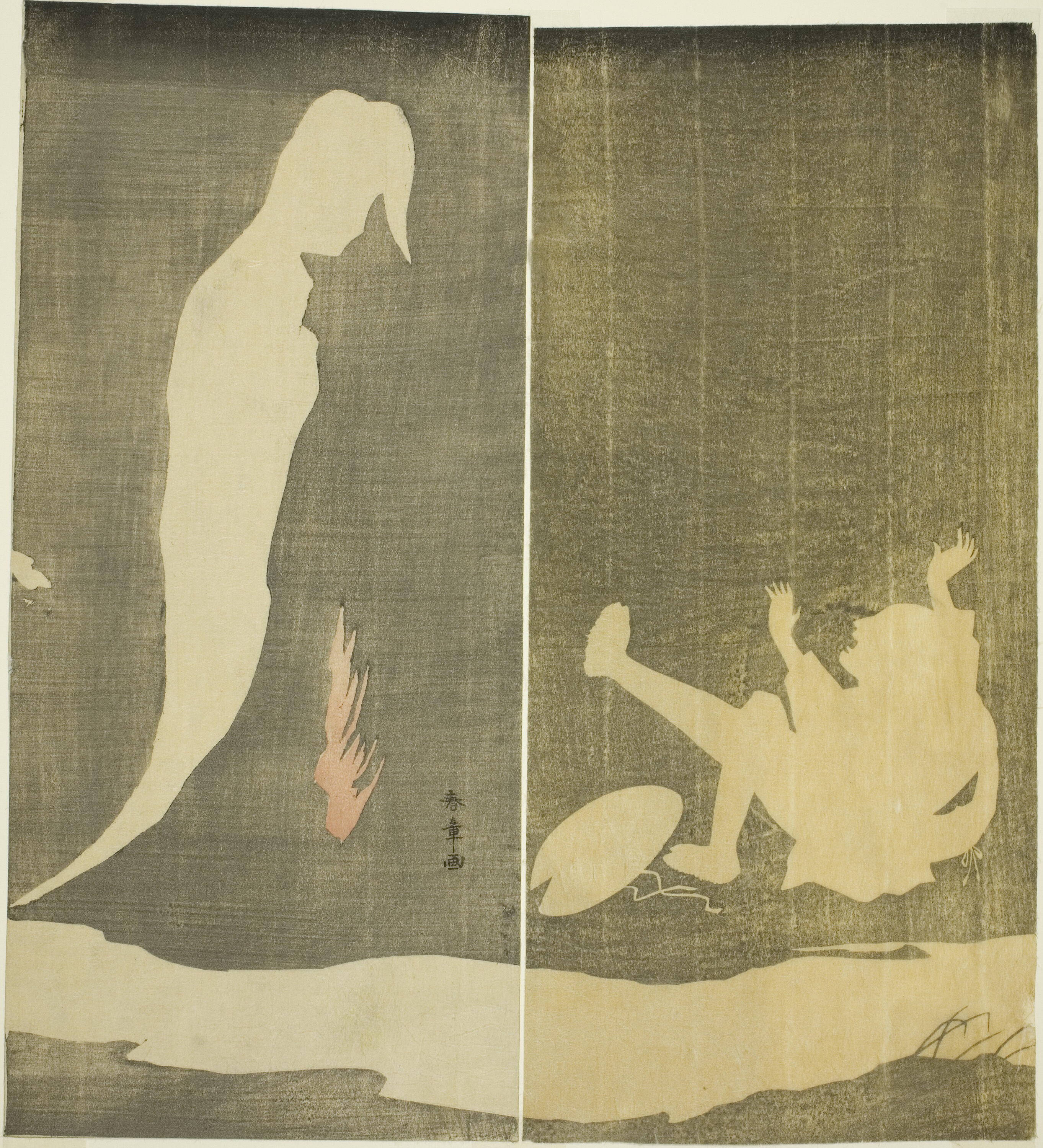
Katsukawa Shunsho 勝川 春章:
Man Falling Backward, Startled by a Woman’s Ghost over a River
(c. 1782)
" … because it couldn't."
I came to understand that I previously understood Success backward. It was not as I'd imagined it before I began this dialogue with myself over its nature. I make no firm conclusions, just this observation I must have previously understood backward. I might acknowledge that properly engaged in dialogue often produces this result, which is no conclusive result at all other than to suspect a previous backward understanding. Understanding grew but also created less certainty, an apparent paradox that everyone might notice seems perfectly congruent with their own experience. As a general rule, we do not ever get to the bottom of anything, though we might sometimes misleadingly sense that we're moving in that general direction.
The purpose of dialogue might just as well be this very outcome.
Futures

Giulio Bonasone, After Giulio Romano:
An Omen of the Future Greatness of Augustus (16th century)
" … we're heading in precisely that direction!"
Optimism seems an intrinsic part of Success. I can't imagine Success without a significant contribution from positive anticipation. The Eeyores of this world can't experience Success, perhaps because their perspective won't allow it to manifest. Those who firmly believe in their own positive potential seem to more comfortably realize some semblance of it. The belief need not necessarily be based upon any verifiable facts and might eventually prove to have been pure fantasy.
Nevertheless, it might still positively contribute to some sense of Success, even if it proves to be less than anticipated.
Pasts

Johann Georg Wille: The Philosopher of the Past (1782)
"It isn't, but was, and promises to one day be before slipping behind me again."
I often imagine my Successes as assets, like coins stored in a bank, except I know there’s no bank there. I remember high points, but I must admit that I do not reside near them. Instead, they belong to my Pasts, the many and various people I've been and places I've inhabited. Each Success seems forever tied to the particular place and time in which it occurred, and though I sometimes think of them as tangible possessions, I understand that they are not and never were. Instead, they exist as memories, which seem tricky characters sometimes capable of appearing real, as if they are living in this present moment rather than suspended somewhere before.
Each of my careers experienced some Successes.
Grudgements

Jacob Duck:
Salome with the Head of Saint John the Baptist
(mid-1600s)
" … steal every possibility for achieving Success"
I possess no foolproof method for attracting Success, just the collected anecdotes included in this almost-finished series. These, distilled together, would not render much of a magic potion, and I did not intend to write a how-do, Do-In-Yourself series on attracting Success. Success never was a commodity to be traded and conjured but more of an ecosystem of experiences, emotions, knowledge, and actions. Attracting Success seems a fool's mission, but not quite so success’s opposite. I believe that the least of us can reliably chase away Success, and often without even thinking very hard, probably usually without thinking at all. One element seems to undermine Success wherever and whenever it occurs, and that element seems to be Grudgement. Carrying a grudge naturally chases most of the positive energy out of the vehicle and renders the driver its slave. Holding a grudge seems the surest way to ensure that Success stays just as far away as possible.
I present as evidence our most recent former President, who still hasn't conceded his most recent defeat even while claiming to be running for a repeat performance.
TimePassing
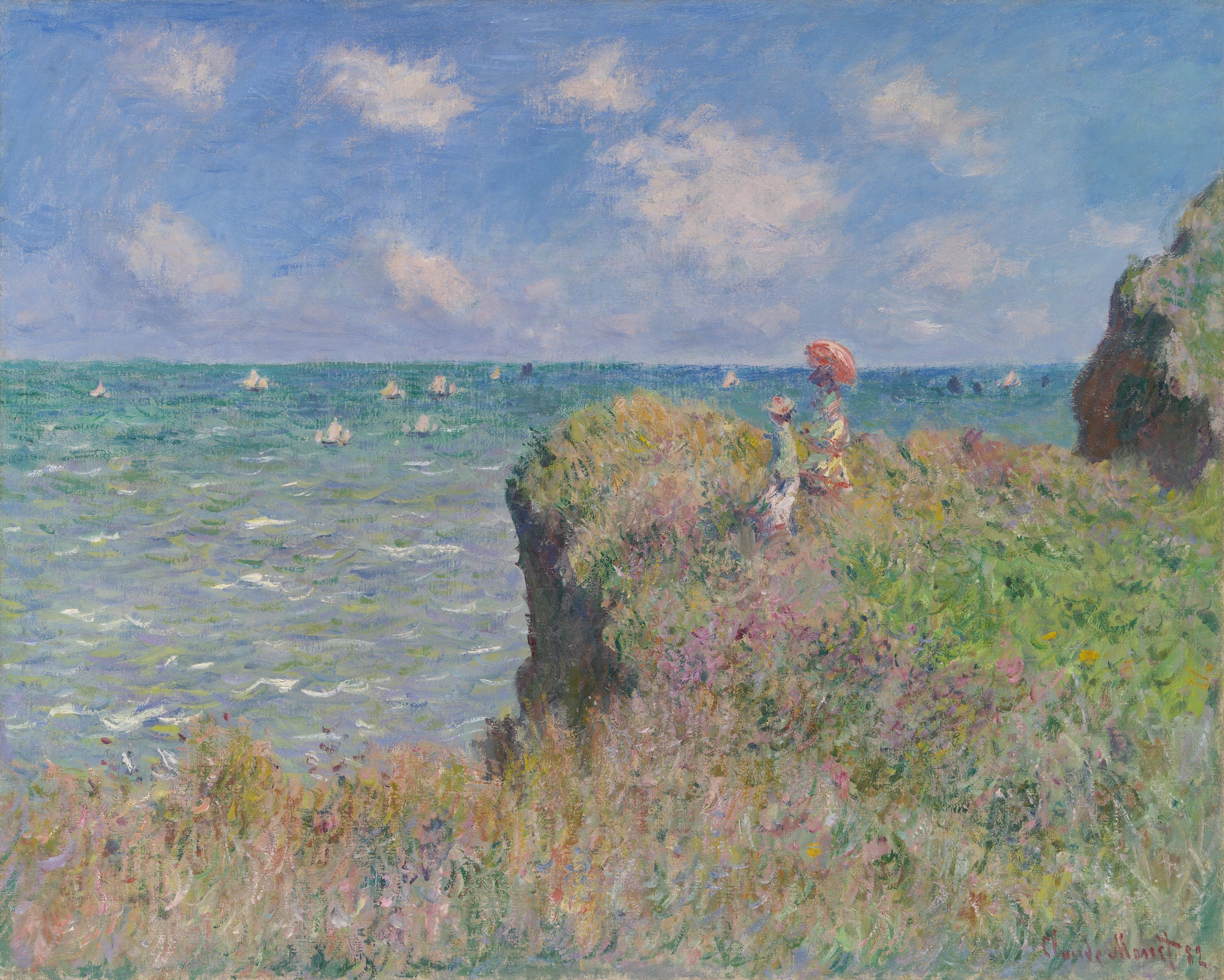
Claude Monet: Cliff Walk at Pourville (1882)
"Everything was different after that."
Success and failure seem every bit as mercurial as time, for the mere passage of time seems capable of utterly changing either's nature. An apparent failure can become an evident Success when seen through the long-ish shadow of additional experience. Events that seemed apparent Successes in the moment they occurred can erode themselves into even more apparent failures later. TimePassing seems capable of utterly reversing almost any experience, of turning pretty much any event into its opposite. There's real wisdom in the advice to sit on or with a failure before wallowing in it, for The Gods, or somebody, remain capable of fiddling with events, reversing their nature. A stumble might enable a better rhythm to emerge later.
I'm sure that we all have our stories of catastrophes narrowly averted by what, at the moment, appeared to have been a serious setback of fortunes.
Puzzlements

Okumura Masanobu:
Solving a Puzzle (n.d., circa 1700-1760s)
" … no more often than occasionally, please."
When the annual New Yorker Puzzle Edition arrives, I resign myself to missing my usual reading material that week. I won't even look at the offered puzzles because they have always just confused me. Likewise, I hop over the New York Times crossword puzzle page. I find puzzles puzzling rather than entertaining. I consider those who dedicate themselves to Wordle, whatever that is, unfortunate. The Muse is forever playing solitaire or something on her phone. I find even the mention of card games boring. I will not submit to playing board games, either, with the very occasional exception of Scrabble. I find board games aptly named in that they seem boring. Given a choice between sitting quietly in some corner and solving a puzzle, I'll choose sitting quietly in some corner fifty times out of twenty.
I admit that Success sometimes demands that I solve some genuine Puzzlement.
|Success|

Claude Monet:
The Departure of the Boats, Étretat (1885)
" … my purpose must be clear,
for it is always and without exception,
what my actions manifest here."
I think of Success and failure as positive and negative arcs on the same old number line, with Successes progressing outward to the right of the midpoint and failures fading outward to the left. Both great Success and great failure can be represented there by their distance from the center. Some Successes don't really amount to much, less than ten on an infinite scale, while others loop off into the far, far distance. Same story with failures, though their emotional content leans toward the sorrowful rather than the joyful. Each point on both sides denotes some emotional range, from minor to great, and therefore might qualify for assessment as absolute values rather than as opposites. Yes, sadness differs in content while similar in strength. A ten on either pole might then be considered roughly equal in scope, though opposite in emotional texture.
I bring up this admittedly arcane point for a potentially practical reason.
AbjectSuccess

Walter Crane: King Midas with his daughter,
from Nathaniel Hawthorne's 1893 edition of
A Wonder-Book for Girls and Boys (1893)
"The absence of its opposite …"
Midas stands as the archetypal embodiment of a specific sort of Success none of us hope to achieve. To at least try to be honest, his error seems innocent enough. He had not thought his greed to or through its logical extents. He overreached. Each of us has just as innocently stepped over some similarly unseen edge, if only when gorging at a holiday table. We celebrate our great Success, only to render ourselves miserable as a result. Too much of some good things seem worse than the worst of all possible outcomes. Midas sought a magic touch such that everything he touched might turn to gold. Granted that short-sighted wish, he found himself unable to eat or drink and, when he touched his beloved daughter, Abjectly Successful.
I suspect that each of us holds this capacity.
Hackcess

Pierre-Auguste Renoir: Self-Portrait (1876)
"Hackcess ever only happens once …"
I admit that I've mostly lived outside the boundaries of propriety. I didn't seek an advanced degree before practicing my professions but made up my approaches as I went along. I experienced at least my fair share of Success, but perhaps by unfair means. I dropped out of my high school typing class rather than flunk it, but I still went on to become a best-selling author, though I'm still an absolute hack typist. I present my two and a half typing fingers as prima facie evidence, along with my bestseller and the second dozen manuscripts I will have finished by this Summer's solstice. I garden, but not according to anyone's rules, not even my own, since I seem to continue making up my practice as I go along. I'm always learning but never learnéd. Forever the hacker.
One way to most reliably fail seems to me to be to hold oneself to someone else's recipe, the way things are supposed to be done.
ThePrice

Honoré Victorin Daumier:
The Print Collector (c. 1857/63)
"Success seems priceless"
The cost of Success might eventually come into question. The underlying idea being that the value of the Success should stand in excess of the price and that Successful action should properly show a profit rather than a loss. Upon reflection, this sort of cost accounting should seem spurious since it employs less than uniform units. How might one assess value, and on what basis? Likewise, how might one reasonably account for profit and, again, using which values? Scrutiny should properly find the whole effort spurious, if not entirely worthless. Few of us won't catch ourselves attempting to complete such an assessment, though, us having been reared within a capitalist system. We were raised to produce profit and loss statements.
When it comes to Success, though, we might prefer to cipher in units of happiness or joy.
TrueConfessions

Alfred Stieglitz: Dorothy True (1919)
"I must tell my stories or else …"
It's always seemed unlikely to me that I might ever Successfully meet any challenge. I tend to start with a glass already half empty or, more often, no glass at all with which to address the challenge. I eventually discovered my adequacies lurking in eternally unexpected places and that I almost always proved capable of Success, however impossible it had earlier seemed. I suspect a lesson lurking to be discovered in there, but I hope it's not an obvious one. I despise finding out that I've been seeing right through some prominent something, the last one in the room to finally acknowledge what everyone else long ago perceived. It peeves me. It might be true, though, that I was never nearly as inadequate as I felt. I could have always interpreted those sensations as representing something else besides my inadequacies, whatever that might have been. I might have always actually been more than adequate without hardly ever feeling as though I was.
I am learning that confessing really does clean up the spirit.
Starting
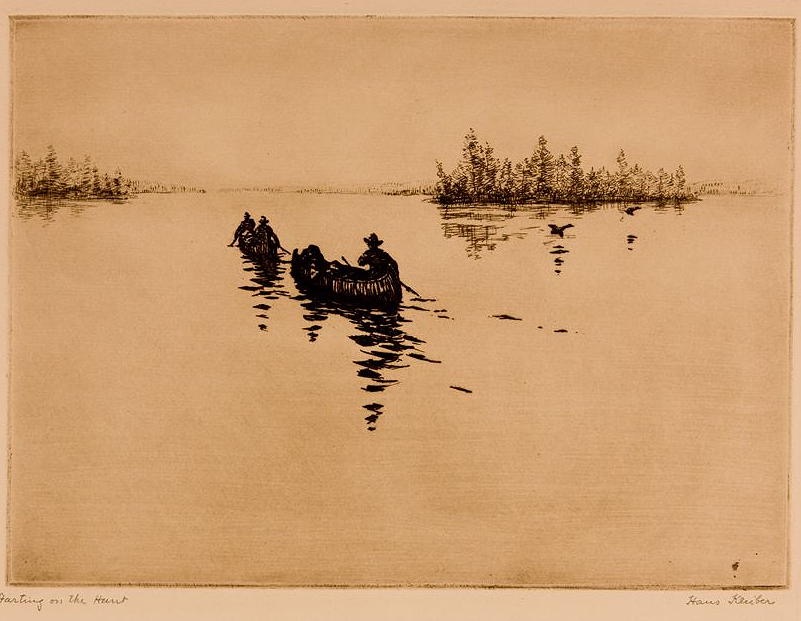
Hans Kleiber: Starting on the Hunt (20th century)
" … much, much, much better at it than I've ever been."
I think of Success as necessarily tied to completing something, but its natural antecedent lies in Starting something. I can become an enthusiastic finisher once some pattern of execution settles in, but Starting seems to be my nemesis. I do not easily get moving in any direction, regardless of how alluring any impending Success might seem. Until I've found some rhythm and anticipatable pattern, each opportunity just seems like another unopened can of worms offering otherwise unnecessary complications. These complications might always be necessary, little dedication tests left expressly for my challenge, for if I cannot get myself Starting, I'll never propel myself into any Success.
I search for a handhold, someplace to start, for each effort seems first a smooth, blank wall.
QuestioningDichotomies
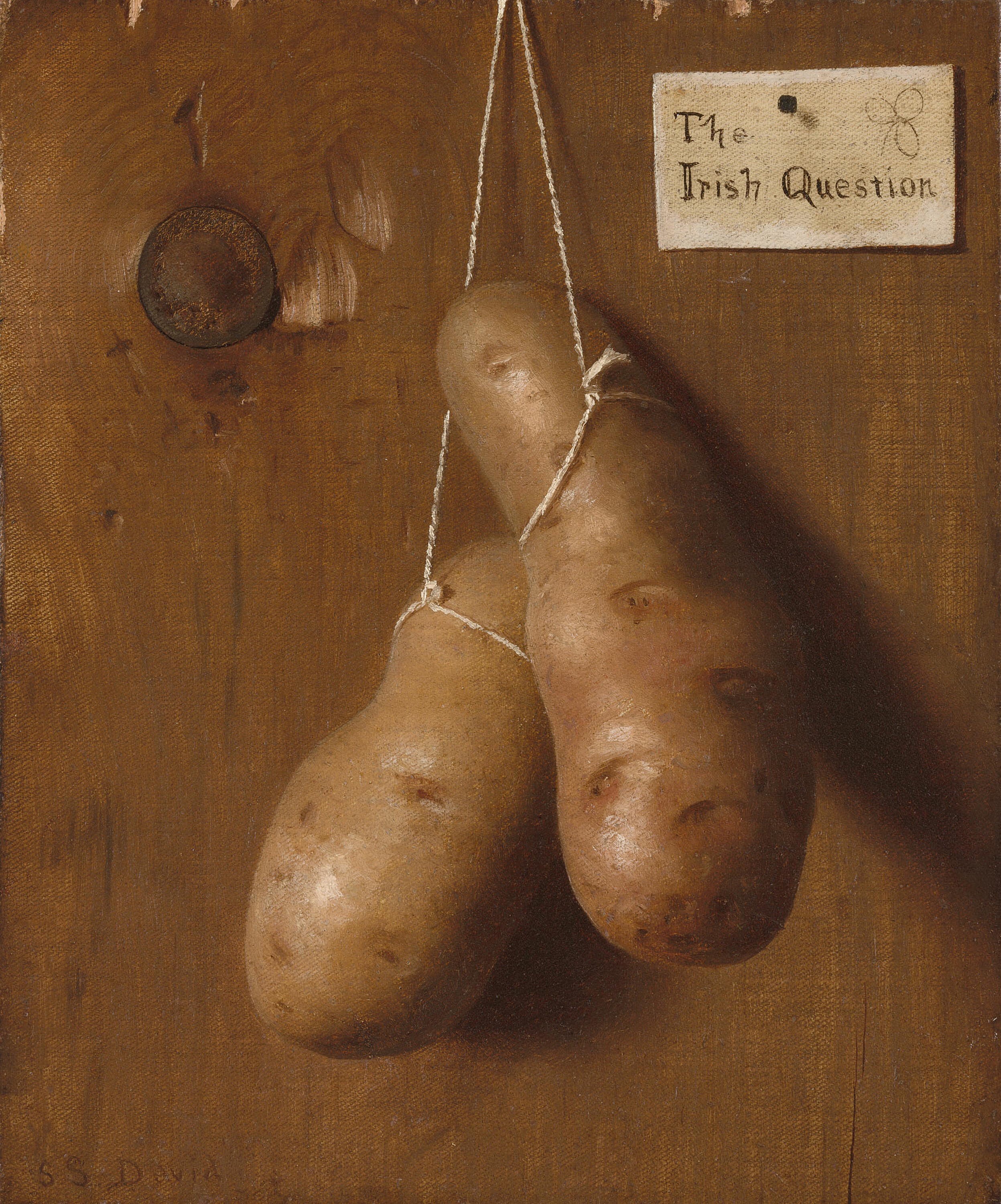
De Scott Evans: The Irish Question (1880s)
"We all know what happens then."
A decent inquiry seems to follow a predictable trajectory. It begins by making some clear distinctions and defining its territory. Later, this initiating dichotomy starts breaking down as the earlier clear distinction starts evaporating, first a little, and later, a lot. By the end of the investigation, the initial distinction should have almost completely fallen apart such that the beginning arguments might seem utter nonsense, the subject having been rendered nearly absurd by then. Like this series, started in relative innocence, into the nature of Success, I have grown to question my founding premise. I no longer believe in Success as I once presumed it existed. I've reached no definitive conclusion, which is also typical of any genuine investigation. Our expectations might have been utterly poisoned by our too-close exposures to crime fiction, where endings bring resolutions. The real world deals more in enlightening confusions.
It might just be that all dichotomies must ultimately prove to have been fictions.
SuccessDelayed

Peter Paul Rubens:
The Voyage of the Cardinal Infante Ferdinand of Spain from Barcelona to Genoa in April 1633, with Neptune Calming the Tempest, Alternate Title: Quos Ego (1635)
"I revel most in those long-delayed Successes!"
Some messes prove difficult to resolve. I do not know why. The pile of boxes accumulating in the basement dated from a year ago last Christmas, if my forensic flattening figured out anything. Finally, yesterday, I tore into that mess and resolved it in something under an hour. I loaded up Elizabeth, our Lexus pick-up truck stand-in, and The Muse and I performed a royal procession to the cardboard recycling station at the local landfill. We were filled with a deep sense of genuine accomplishment, a feeling far greater and more rewarding than could have ever come from routinely dealing with those boxes as they'd come. That pile of boxes, long a source of quiet disgust, held great potential to produce tremendous satisfaction, but only after it had been liberally marinated in fifteen months of my most dedicatedly degrading procrastination.
Those months of quiet disgust at just how slovenly I'd been turned into the most extraordinary sensation of Success I'd felt since before last Christmas.
Nullness
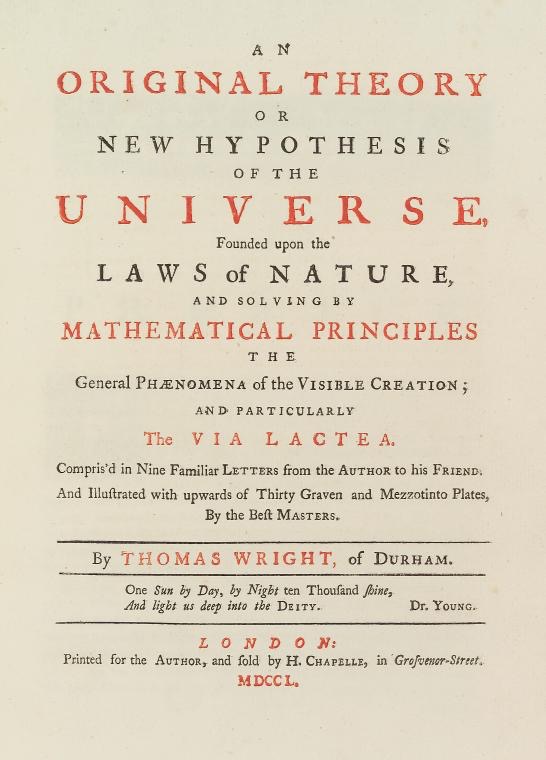
Thomas Wright:
An original theory or new hypothesis of the universe
(1750)
"Success often resides in no result."
Determining when something's working can prove damnably difficult. Over many years, scientists have devised counter-intuitive methods for better bulletproofing their assertions. Prominent among them must be The Null Hypothesis. This convention turns inquiry on its head because instead of presuming effectiveness, i.e., something's different, it presumes no change at all, or no significant change. Success under this arrangement must be inferred because it might not prove directly observable. We can see what isn't much easier than we might see what might be there. This convention leads scientists to produce different conclusions than those made by the typical layperson, even one armed with connection to The Internets, because the layperson tends to ask the wrong sorts of questions.
Search, for instance, isn't very closely correlated with research.
Judge

William Blake: God Judging Adam (ca. 1795)
" … exclusively reserved for my inner masochist."
Who judges Successes and failures? For me, most of the time, it's nobody but me. This assertion makes sense since nobody but I witnesses most of what I do. I am usually the only witness to my actions. Only a select few of my engagements ever prove witnessable because most of them occur entirely, or mostly, in my head. A few busybodies with nothing better to do might be snooping over the back fence, but nobody really cares about their judgments, so they make lousy Judges, anyway. The ever-feared Court Of Public Opinion might render the occasional decision, too, but only the upwardly mobile ever really care to seek their opinion. Bosses, spouses, and police forces each seem inattentive compared to my primary Judges: me, myself, and I.
I sometimes wonder why I ever subject myself to harsh judgment.
SelfSaboteur

Jean-Siméon Chardin:
Self-Portrait with a Visor (c. 1776)
" … my fair share of nothing much at all."
However Successful I might have otherwise become, I might always remain most Successful as a SelfSaboteur. I undermine my intentions in at least ten thousand shifting ways, rarely precisely the same way twice. I head myself off and detour my own progress. I discourage myself like a master chef fillets a salmon, one clean cut, and my courage pulls free, leaving exposed flesh. I can be critical. I become distracted. I shift my priorities so my heart's most fervent desire can't find itself on my schedule. I fritter most mornings away. I go to bed early and rise even earlier until I swear I can find no time to accomplish anything. Most of my life has always seemed to be pending, idling, waiting for something. In all these things and many more, I count myself most Successful.
Success, though, real Success hardly requires much excess time or talent.
FeyLure

Hieronymus Wierix, after Ambrosius Francken:
Volwassenheid [Maturity] (1563 - 1584)
" … our world seems much more Successful for our forebears' fumbled passes."
My parents' generation matriculated in the school of hard knocks. Their elementary education, such as it was, occurred through the depths of The Great Depression. They came of age into a world at war with itself, where the battle between good and evil actually killed their cousins. As a result, they were traumatized and paranoid adults, easy prey for the day’s propaganda. They saluted the flag or else. They devoutly opposed everything Communist. They voted the straight Republican ticket because Eisenhower embodied the victory over evil in this world. They tried and gratefully failed to instill their worldview into their children.
It has always been thus, parents failing to fully enlist their offspring into the trauma that fashioned their adulthood.
AlsoRan
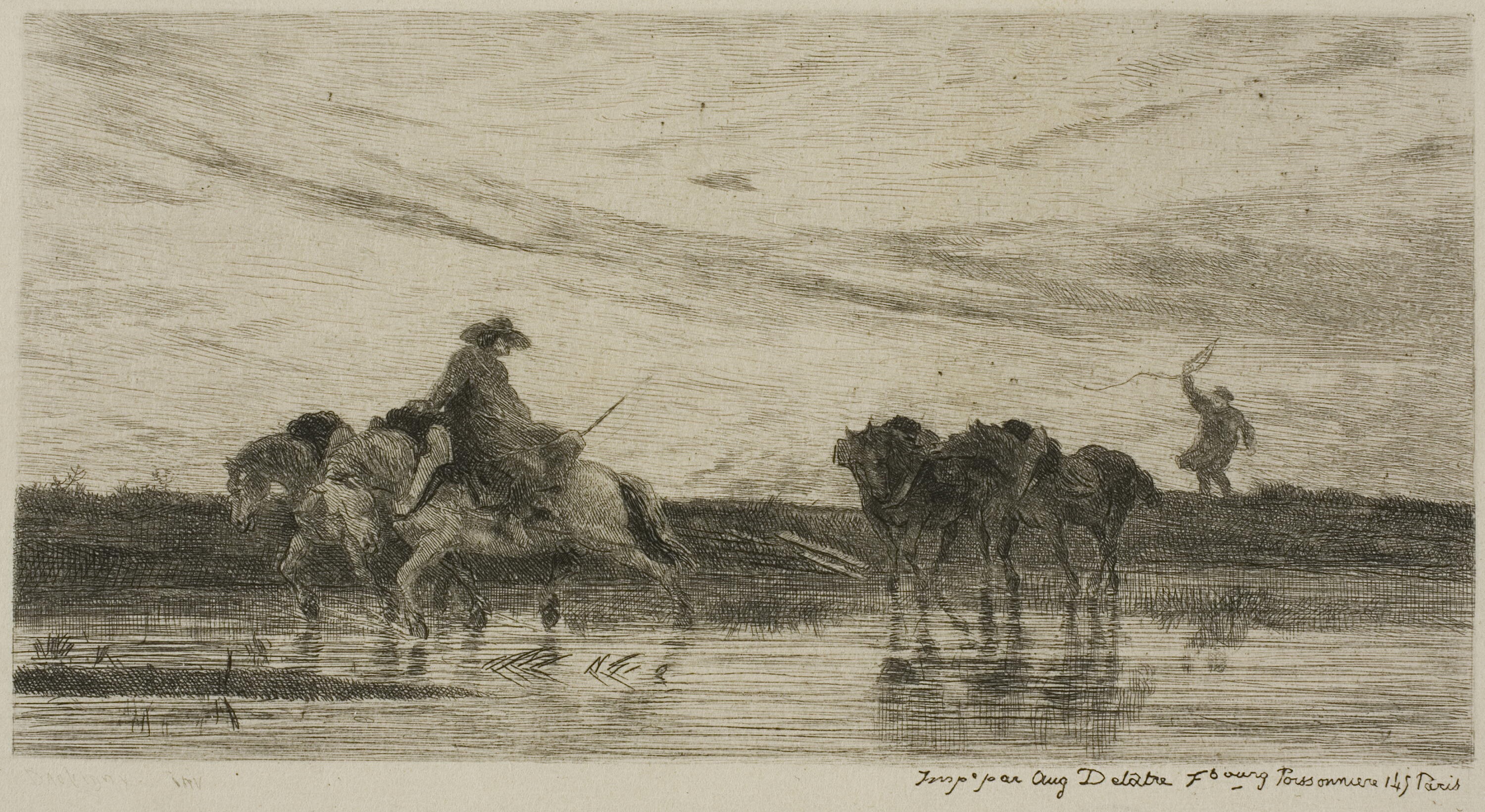
Charles François Daubigny: The Dray Horses (1850)
"Such is the eventual nature of continual competition …"
Every horse race features a winner along with a second and third-place finisher, losers, but still paying off some bettors. The balance of the field AlsoRan, but ran out of any money. These animals lost the race. They aren't even really considered contenders. Their statistics will reflect this disappointing outing. Some of this crowd, for it comprises the majority of the entries, will be on their way up, destined for better, while others experience another step on a long and inexorable slide. It might be that the majority of every field—the entrants in every race—contribute nothing more than contextual significance. They were never destined to win, more destined to lose or not really compete, certainly never competing in the way that the reliable winners might. They could be counted as present but without distinction. They showed up without showing.
This AlsoRan state describes me most of the time.
HasBeen

Hendrick Goltzius: Gillis van Breen (1588/92)
" … the most Successful HasBeen I can remember."
No inquiry into Success could be considered complete without at least mentioning the HasBeen. The HasBeen might have once held high office, but no longer. His legend's much more potent than his presence. He once was but is no longer. In government service, a protocol insists that anyone retired shall forever be acknowledged by the honorific appropriate to the highest office they held. A former President shall be forever referred to as Mr. President, even though he might have also once been a dog catcher or a Senator. Ambassadors might come a dime a dozen, but nobody outlives that designation. There's just no living down some things. Those of us who never served in government might struggle to identify the highest role we ever fulfilled. Protocol remains mute on whether it's appropriate to refer to an ex-Data Analyst II's most elevated position when acknowledging them or if the less noteworthy titles defer to Mr. or Ms. However, this suggestion backs up to treacherous pronoun territory, which should be avoided under every possible condition.
One ages into a HasBeen without volition.


